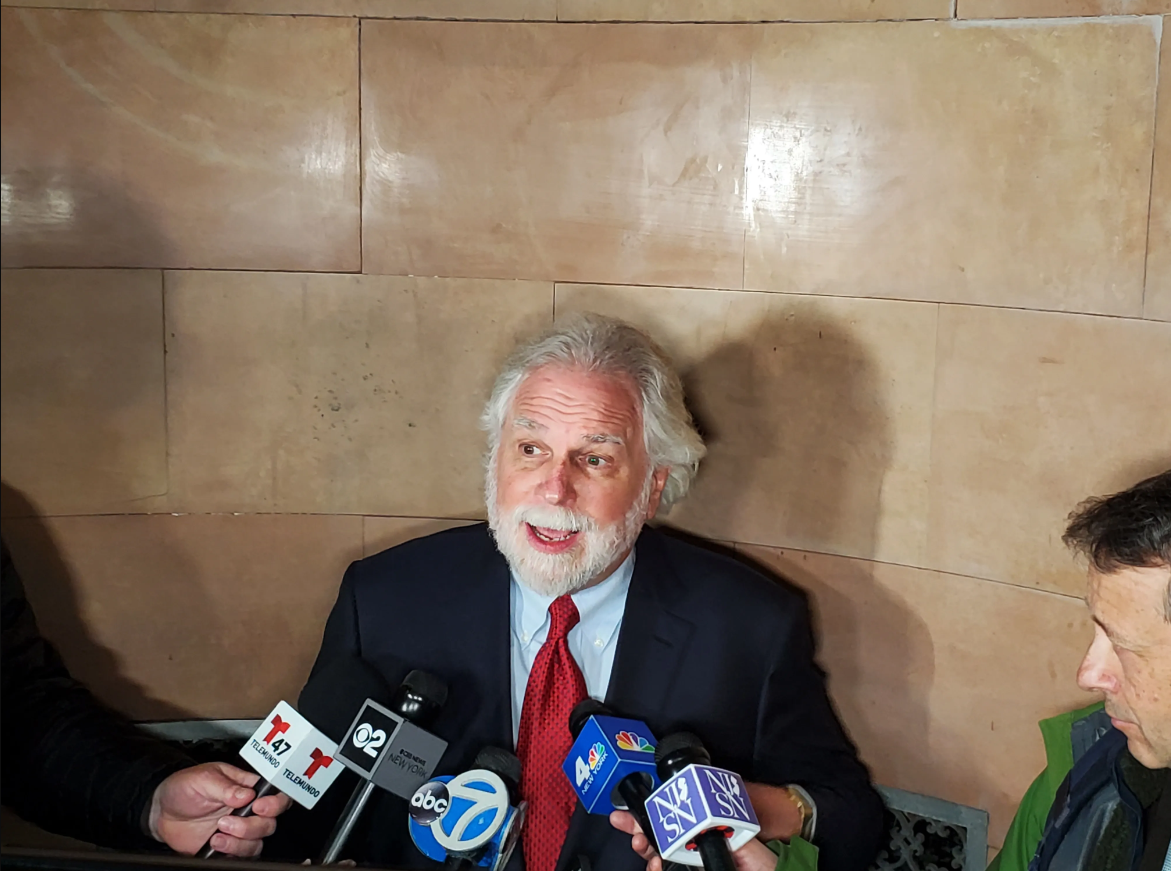The driver of a Chinatown tour bus that toppled over last March, killing 15, hadn’t slept for three days and should never have been behind the wheel, found the National Transportation Safety Board in a new report about the horrific crash.
The National Transportation Safety Board announced today that the probable cause of the 2011 accident was driver Ophadell Williams’ failure to control the bus, which they attributed to fatigue.
Ophadell Williams had nearly no sleep in the three days leading up to the March 12, 2011 crash, officials reported. Williams was unable to properly steer the bus away from the road’s edge and a deadly support pole that sliced through the vehicle, ripping the roof off.
The pole sliced through the entire bus, from front to back, which slid through at the height of the passenger windows and tore the roof from the bus. The bus toppled over on I-95 in the Bronx. Fifteen of the passengers died, and 17 were injured. Williams also had minor injuries.
Investigators asked Williams to detail the three days before the crash, and he told about arriving home around 11 a.m. and waking up again at 4 p.m. for another night drive. He would sleep for a few hours in the bus seats while passengers gambled, he said.
But investigators noted that his cell phone and rental car were in use in the daytime hours, according to the report, leading them to suspect to he had been out and not catching some badly needed zzz’s.
The investigation concluded that Williams “was impaired by fatigue” at the time of the crash, according to the report. They did not say he was asleep.
“His lack of evasive braking or corrective steering action as the bus drifted off the roadway was consistent with fatigue-induced performance impairment,” the report added.
The bus, traveling at 78 miles per hour, careened to the right off Interstate 95 around 5:30 a.m., driving over the rumble strips on the right shoulder edge and crossing the 10-foot-wide shoulder, according to the report.
The bus was on its way back from the Mohegan Sun Casino in Connecticut.
Sleepy driving similar to drunk driving
Several studies show that the little amount of sleep Williams had would have rendered him even more impaired than had he driven drunk.
During one study, people who were sleep deprived for 24 hours straight had the cognitive equivalent of being legally drunk, The New York Times reported.
A previous study in the British journal Occupational and Environmental Medicine found that drivers who had been awake for 17 to 19 hours performed worse than those with a blood alcohol level of .05 percent, about equal to downing two alcoholic drinks.
Response speeds were up to 50 percent slower for people going on 17 hours without sleep, according to that same study.
Airplane pilots are required to receive a minimum 10-hour rest period, including an opportunity for eight hours of uninterrupted sleep, pointed out Dr. Marlynn Wei, a Manhattan psychiatrist and sleep expert.
“(Sleep) is particularly important for people in transportation, just for public safety reasons,” Wei said. “For a driver, it would be reaction time, decision making.”
Without regular sleep for several days, she said, “You would first be very fatigued, so your reaction time might be extended.”
“Decisions might not be what you would normally make if you were fully rested,” she continued. “Your senses aren’t impacted, but your reaction time might be delayed.”
Where is Williams now?
Williams pleaded not guilty to manslaughter and criminally negligent homicide charges, and is in Rikers on a $250,000 bail. His next court date is in September, according to the Bronx D.A.’s office.
Williams had not turned in driver’s logs, according to the AP, and had been fired twice. At the time of the accident, his license been suspended 18 times. The bus company hired him even though he had a suspended license at the time, investigators found.
The bus company, World Wide Travel Bus, was shut down after the crash, but many employees were transferred to another company, Great Escapes, according to the Associated Press. That tour bus company still operates.
The report also chastised World Wide for not using an on-board safety monitoring system to track Williams’ driving, which investigators said would have detected his “unsafe behavior.”
And the NTSB recommended that motor companies adopt a fatigue management program, based on the North American Fatigue Management Program, which recommends eight hours of uninterrupted sleep for drivers.
















